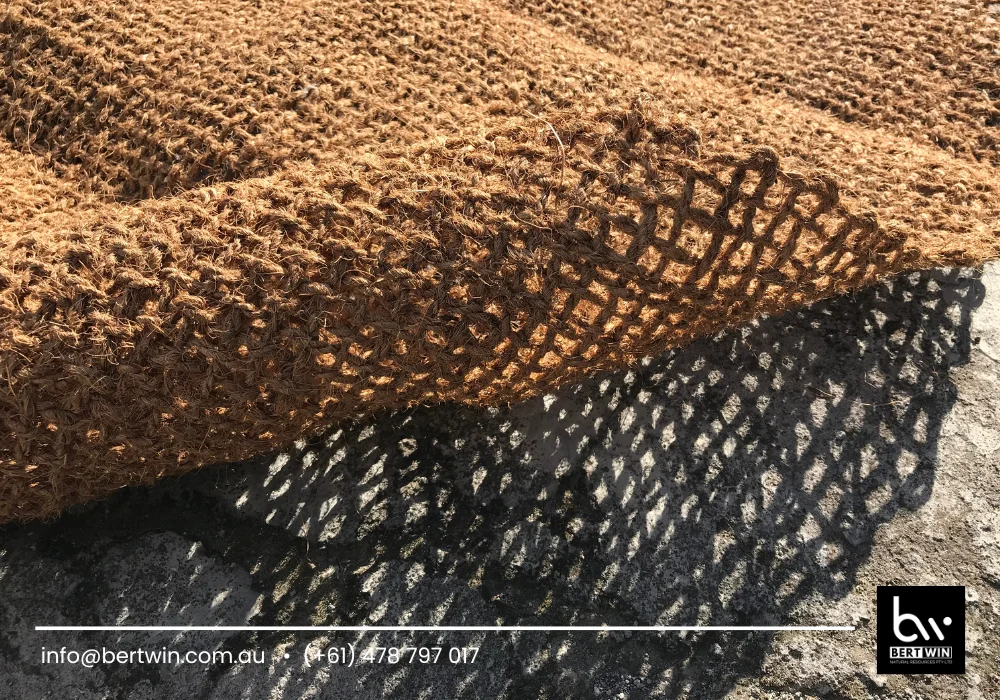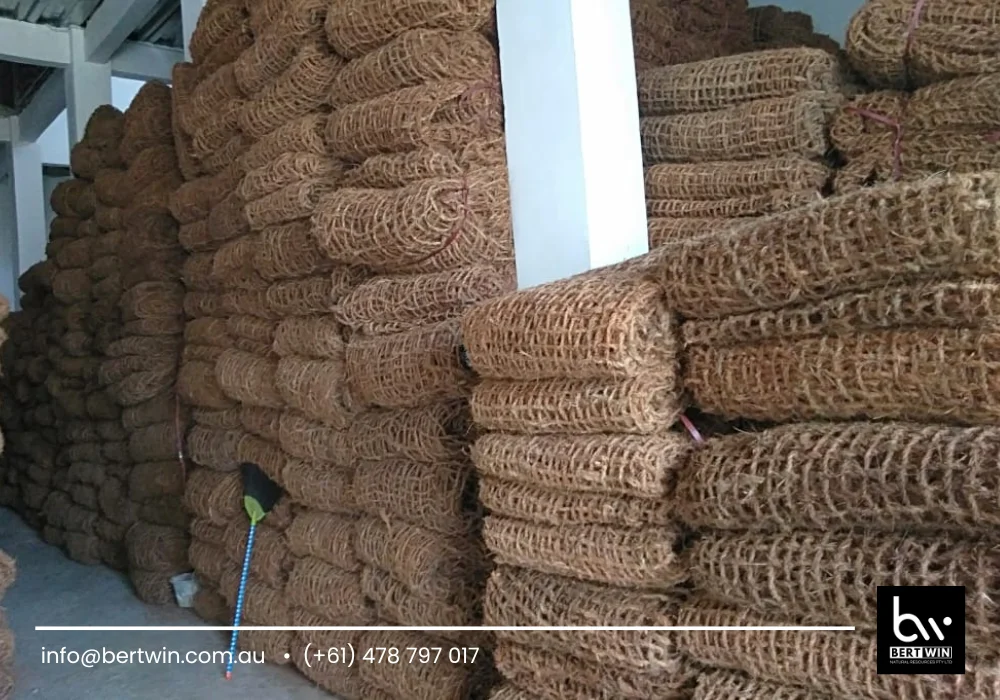What Is Custom Coco Mesh and Why It Matters
Custom coco mesh is an eco-friendly, biodegradable netting made from coir fiber, derived from coconut husk. It’s primarily used in landscaping, construction, and environmental conservation to prevent soil erosion and promote vegetation growth. As environmental awareness grows, more industries and government projects are turning to sustainable alternatives like custom coco mesh for stabilizing slopes, riverbanks, and embankments.

This natural mesh provides a protective layer over exposed soil, helping to minimize the effects of heavy rainfall and runoff. In addition to erosion control, custom coco mesh also enhances plant establishment by holding seeds and topsoil in place, making it an ideal product for eco-conscious developers, engineers, and landscapers.
The rising demand for green building materials has made custom coco mesh a go-to solution. Whether you’re restoring coastal areas, rehabilitating mining sites, or simply maintaining your garden, this product provides both functionality and sustainability without compromising on performance.
Key Benefits of Using Custom Coco Mesh
1. Environmentally Friendly and Biodegradable
One of the most notable benefits of custom coco mesh is its biodegradability. Made from 100% natural coconut fiber, it decomposes over time, leaving no toxic residues behind. Unlike synthetic alternatives, it does not harm the surrounding ecosystem, making it safe for use in sensitive environmental areas like wetlands, national parks, and wildlife habitats.
Because it breaks down naturally, custom coco mesh contributes nutrients back into the soil, supporting the long-term health of the area it’s applied to. This makes it particularly suitable for projects where long-term sustainability is a priority.
2. Strong and Durable Structure
Although it’s biodegradable, custom coco mesh is surprisingly durable. Coir fibers are known for their strength and resistance to rot, which means the mesh can last from six months to three years depending on the environmental conditions. This gives vegetation ample time to establish strong root systems before the mesh fully decomposes.
Custom coco mesh is also UV-resistant, allowing it to withstand sun exposure without rapid degradation. This durability ensures that it maintains its form and protective function during the crucial period of plant growth and soil stabilization.
3. Versatile Applications
From construction sites to agricultural fields, custom coco mesh is incredibly versatile. It can be tailored to different project requirements in terms of mesh density, roll size, and thickness. Typical applications include:
- Roadside embankment protection
- Slope stabilization
- Riverbank and shoreline restoration
- Mine site rehabilitation
- Landscaping in residential and commercial spaces
Custom coco mesh is also widely used in green roofing systems and vertical gardens, where it serves as both a planting medium and a structural support. Its flexibility and adaptability make it suitable for a wide range of environmental conditions and terrain types.
How to Install Custom Coco Mesh Effectively
1. Site Preparation
Before installing custom coco mesh, clear the target area of large debris, rocks, and weeds. Level the ground if necessary to create an even surface for the mesh to lie flat. In cases where steep slopes are involved, creating small terraces may help improve mesh stability and seed germination rates.
2. Unrolling and Securing the Mesh
Unroll the custom coco mesh along the slope or soil surface, aligning it with the direction of water flow. Overlap the edges by 10–15 cm to ensure full coverage and prevent water from seeping underneath.
Use biodegradable pegs, wooden stakes, or metal pins to anchor the mesh securely into the ground. Make sure each section is tightly fixed to avoid lifting during rain or wind events.
3. Seeding and Maintenance
Once the mesh is installed, apply seeds and mulch directly over or under the mesh layer, depending on the type of plants being used. Water the area consistently for the first few weeks to encourage germination.
Over time, as vegetation takes root, the custom coco mesh will naturally break down. Regular inspections during the early stages are recommended to identify any areas where additional anchoring or reseeding might be needed.
Why Choose Custom Coco Mesh Over Synthetic Options

While synthetic erosion control mats are readily available, they often come with environmental trade-offs. Many are non-biodegradable and can introduce microplastics into the ecosystem as they degrade over time. In contrast, custom coco mesh is fully compostable and derived from renewable resources, making it a better long-term investment for both people and the planet.
Its natural composition also makes it more compatible with native plants and soil organisms, fostering biodiversity and soil regeneration rather than disrupting it. Custom coco mesh reflects a commitment to sustainable practices, making it the preferred choice in eco-sensitive projects.
Conclusion
Custom coco mesh offers an effective, sustainable, and natural solution for erosion control and environmental rehabilitation. Its ability to blend strength, biodegradability, and versatility makes it ideal for a wide range of applications—from landscaping and gardening to large-scale infrastructure projects.
Choosing custom coco mesh is more than a practical decision—it’s a step toward responsible environmental stewardship. Whether you’re an engineer, landscaper, or conservationist, incorporating this natural product into your projects can significantly reduce your ecological footprint while delivering excellent results.
For further information, you may contact us via WhatsApp or send an email to info@bertwin.com.au. We’re happy to assist with product details, custom sizing, and application guidance tailored to your needs.
